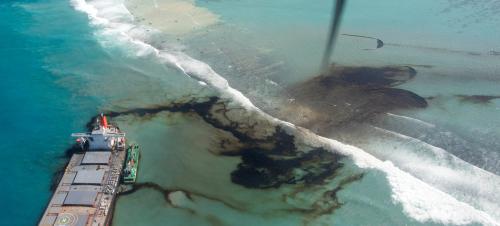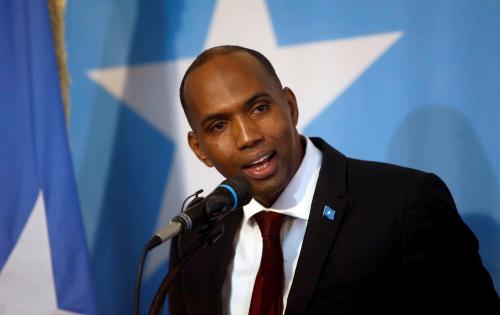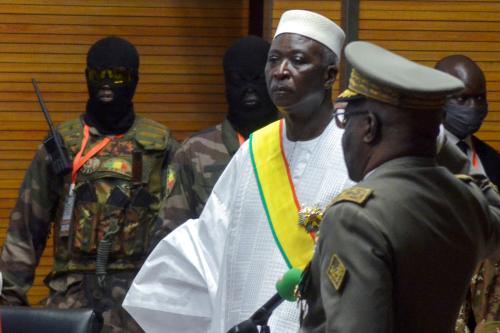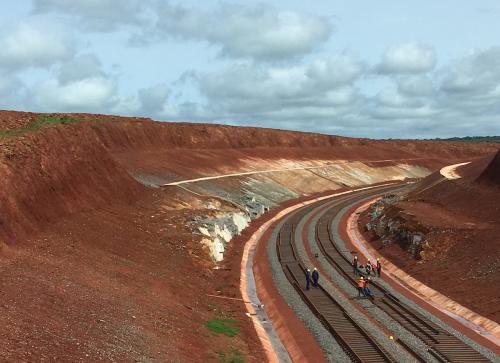Mali transitional president and prime minister removed in a coup
Mali transitional Vice President Assimi Goïta announced on Tuesday that he had removed from power transitional President Bah N’Daw, transitional Prime Minister Moctar Ouane, and several advisers in another coup. Goïta—who also led last year’s coup—stated that the removals were due to their failure to consult him on a cabinet reshuffle. On Wednesday, Mali’s president and prime minister were released from detention after resigning. The resignation letter, according to the AP, puts Mali at risk of more instability. In the meantime, Goïta has declared himself the country’s transnational president and has stated that elections will take place next year as planned.
The Economic Community of West Africa States (ECOWAS), the African Union (AU), and the United Nations Multidimensional Integrated Stabilization Mission in Mali (MINUSMA) released a joint statement categorizing the events as a “reckless action … that risks weakening the mobilization of the international community in favor of Mali.”
The European Union has also warned that they are considering measures against those who obstruct the Mali transition. The United States stated that it will be “suspending security assistance that benefits the Malian Security and Defense Forces that we had continued previously pursuant to available authorities.” Like the European Union, the United States also indicated that it will consider sanctions against those who impede Mali’s transition.
This coup comes after a previous coup in August 2020 where President Ibrahim Boubacar Keïta resigned after members of the Malina Armed Forces seized Keïta and Prime Minister Boubou Cissé. Regional bodies, including the Economic Community of West African States (ECOWAS) and the African Union, denounced the move and imposed sanctions on new the Malian leaders.
To learn more about the coup in August 2020, consider reading “Africa in the news: Mali coup, Mauritius oil spill, and COVID-19 updates.” Also see, “Africa in the news: New funding to fight COVID-19 in Africa, Somalia’s prime minister voted out, and political updates in Mali and Côte d’Ivoire,” and “Africa in the news: Mali’s transitional government, Somalia’s debt relief, and Togo’s first female prime minister.”
European Union to invest in African vaccine production capabilities
Last Friday, European Commission President Ursula von der Leyen introduced an EU-backed global health initiative during the G-20 Global Health Summit in Rome. The new initiative—formally dubbed “Team Europe initiative on manufacturing and access to vaccines, medicines and health technologies in Africa”—will invest approximately 1 billion euros to promote the development of local vaccine-manufacturing capacity in Africa.
Noting that “Africa imports 99% of its vaccines and 94% of its medicines,” President von der Leyen plans to tackle Africa’s barrier to access for medicine on both the supply and demand sides. On the supply side, the initiative provides sufficient incentive to mitigate the risk of investing in local African biotech and pharmaceutical companies—with the goal of developing numerous regional manufacturing hubs throughout the continent. On the demand side, the initiative plans to work in conjunction with African communities and leaders to overcome fragmented local markets, facilitate market integration, consolidate demand, and promote the use of locally manufactured medical products.
While the long-term outcome of this substantial investment in Africa’s pharmaceutical and medical industry will enable Africa to become more self-reliant and improve access to medical products, the initiative does not plan for African production of COVID-19 vaccines. Nonetheless, the pandemic has underscored the structural problem in “the wide discrepancy in [vaccine] manufacturing capacities worldwide … [and] the importance of diversifying global value chains.”
DRC’s Mount Nyiragongo erupts, displacing thousands
In the early hours of May 22, thousands of residents of Goma—one of the largest cities in the Democratic Republic of Congo after Kinshasa—fled to escape the aftermath of Mount Nyiragongo’s eruption. Humanitarian groups estimated that the lava from the volcano destroyed four villages, rendering at least 5,000 people homeless. The lava also covered a road and half of Goma Airport’s landing strip but stopped 300 meters short of the airport facility and did not otherwise enter the city. Nonetheless, the city experienced tremors that opened fissures in homes and buildings, posing difficulties for transportation within and exiting the city.
The U.N. Refugee Agency expressed concern that toxic gas stemming from the eruption could present an auxiliary threat. Reports indicate that five of the 32 reported casualties so far have been from gaseous asphyxiation as these individuals tried to cross the cooling lava. DRC authorities cautioned residents to remain vigilant, as further eruptions and earthquakes remain a risk.
Monday’s eruption was not the first to threaten the city. In January of 2002, a large eruption from Mount Nyiragongo destroyed 40 percent of the city and more than 4,500 buildings and homes. An eruption in 1977 resulted in the deaths of 600 people.









Commentary
Africa in the news: Mali coup, African vaccine production, and DRC volcano eruption
May 29, 2021